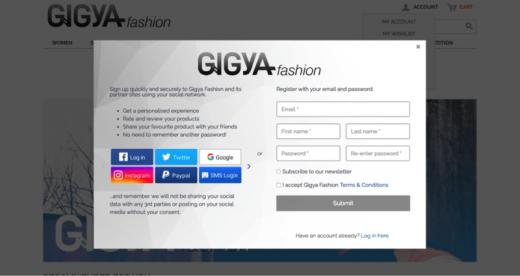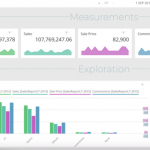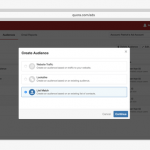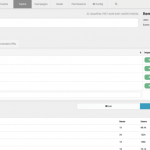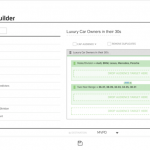How SAP’s purchase of Gigya could change the identity management landscape
Previously an independent manager of social logins and user profiles, Gigya now becomes the identity backbone of SAP’s commerce, marketing and other platforms.
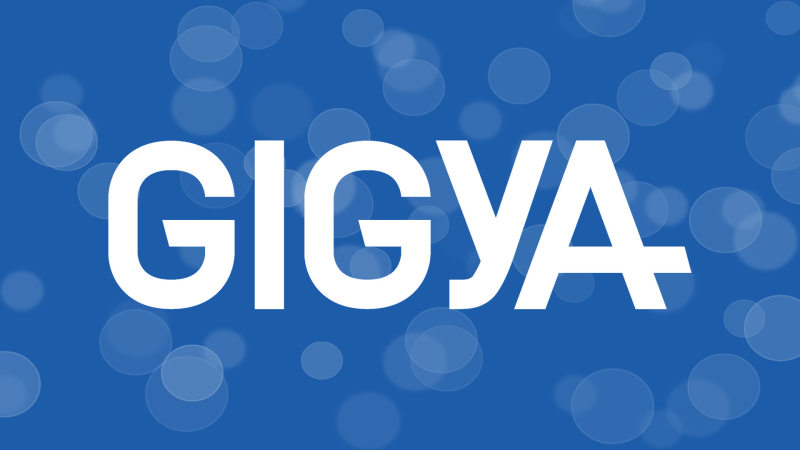
The announcement earlier this week by enterprise software firm SAP that it is acquiring identity management platform Gigya could accelerate the transformation of the Customer Identity and Access Management (CIAM) market.
Gigya’s tech allows sites and apps to accept social sign-ons, where your Facebook, Twitter or other social logins can be readily used to log on to other sites. Here’s a sample screen for a demo “Gigya Fashion” site, but similar logins are seen on countless sites across the web:
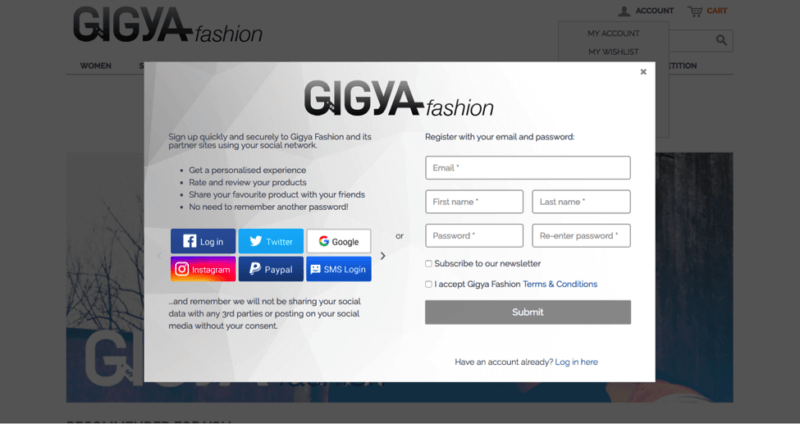
Gigya’s platform allows you to give those sites access to your social network profile. With 1.3 billion customer identities under its management under varying kinds of consent, Gigya has also expanded its scope to include a broader offering of identity management tools.
In 2013, Gigya partnered with SAP’s Hybris Commerce platform, resulting in integrations with Hybris Marketing and SAP CRM (customer relationship management), as well as with Commerce.
SAP Hybris Senior Vice President Marcus Ruebsam told me via email that Gigya can currently pass customer data — such as purchase history or personalized recommendations — between the SAP platforms.
One question is whether Gigya will continue as an identity tool for other marketing and commerce platforms besides SAP. For instance, Gigya offers a use case where it helped the American Kennel Club register new users via their logins for Facebook and other social sites, and then managed those users through an integration with marketing platform Marketo.
Ruebsam declined to give details about whether Gigya would maintain a separate brand and separate customers or become exclusively a part of SAP, saying that more details “will addressed after the transaction closes,” expected by the end of this year.
People-based marketing, GDPR
A fuller integration by Gigya could propel SAP toward a more people-based marketing approach, with a more complete identity for its customers across devices and channels.
It could also lead the Germany-based SAP to become a leader in providing solutions for user consent of private data, given that the Government Data Protection Regulation (GDPR) is coming into effect in May. While Janrain, Evidon and other independent players have released GDPR-ready solutions, SAP could become the largest GDPR-oriented vendor thus far.
“While GDPR certainly is part of the equation,” Ruebsam said, “the acquisition allows SAP Hybris to take leadership of the emerging customer identity and access management (CIAM) market, which will become increasingly important in the age of fake news, malvertising, and seemingly ongoing cybersecurity breaches.”
And Jim Kaskade, CEO of Gigya competitor Janrain, emailed me that, while “GDPR may be a consideration of this acquisition, [it] is mostly a small one,” given that Gigya has not yet released any GDPR-specific solutions.
But, he added, “GDPR represents an important shift in the value proposition of CIAM from simply customer experience to customer data regulation. CIAM now becomes an identity layer for all digital applications that applies to customer data privacy, data consent and data access policy, one that governs how the enterprise manages customer data.”
There’s also the question of whether Gigya’s new status as a part of a major marketing and commerce cloud will impact its status as a identity manager for many sites.
In other words, part of the appeal of a Gigya or a Janrain has been that they are neutral parties, and they’re not offering other services that could compete or conflict with a given site’s. It remains to be seen if this acquisition disturbs Gigya’s position as an independent manager of your customers’ data.
Deal terms for the acquisition were not made public, although TechCrunch says its sources peg the price at $350 million.
Marketing Land – Internet Marketing News, Strategies & Tips
(85)

